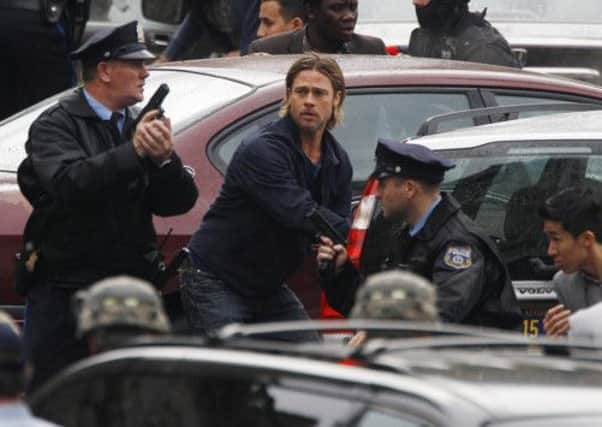Arts blog: Hollywood’s obsession with wooing the Chinese market


The movie, which was partially shot in China and co-funded by a Beijing-based production company, has not fallen foul of the censors like Quentin Tarantino’s recently pulled Django Unchained. On the contrary: it will feature additional scenes tailored for the Chinese market – including ones featuring China’s biggest star Fan Bingbing that won’t feature in any other cut.
The reason is China’s booming domestic film industry. Now worth an estimated $2.7bn a year (and growing exponentially), it’s second only to the United States – and with a strict quota system ensuring that only 38 foreign language movies can be released in the country each year (it was recently upped from 20 after pressure from the World Trade Organization), Hollywood wants to do everything it can to guarantee a piece of that pie.
Advertisement
Hide AdIt’s something Looper director Rian Johnson understood well. He rewrote some of his Bruce Willis-starring time-travel thriller to accommodate a location switch from France to China to secure extra funding and – on account of its Chinese co-production status – one of those elusive release slots last year.
It’s also why the source of the zombie outbreak in the forthcoming film version of World War Z will no longer be rural China; after a troubled and much-delayed production, its backers want to do everything it can to ensure Brad Pitt’s latest doesn’t shuffle its way to global box-office ignominy by limiting its earning potential in China when it goes on release later this summer.
Of course, movies have been routinely edited to appease China’s strict censorship laws for years. James Cameron digitally tweaked his 3D version of Titanic so that Kate Winslet would be seen only from the neck up during the portrait sequence: 3D breasts were, apparently, too much for Chinese audiences to handle (the release added another $160m to the film’s already substantial coffers).
Other films have kowtowed to the censors for cosmetic reasons (shots of laundry hanging in the streets of Shanghai were removed from Mission: Impossible III because it made the city look unkempt), for political reasons (references to torture and prostitution in China were removed from Skyfall), and for racial reasons. With regards to the last of these, Pirates of the Caribbean: At World’s End learned to its cost that casting one of Asian cinema’s biggest international stars, Chow Yun-fat, was of little box-office value when he was being asked to play a racial caricature; his entire role was cut from the Chinese release of the film.
But there’s getting it wrong and getting it wrong: the makers of the recently released Red Dawn remake, for instance, realised too late that it might not be good for business to have an invading Chinese army replace the Cold War-era original’s USA-hating Russian troops. The film, which had already been delayed for several years after its backers went bankrupt, was shelved again while all the Chinese characters were digitally altered in post-production to make them look North Korean.
Happily, the film tanked everywhere – though it did highlight the way North Korea has become Hollywood’s go-to source for villainy. The just-released Olympus Has Fallen features Gerard Butler wiping out North Korean terrorists with impunity, not because the film is trying to engage with current geopolitical events (though that’s what those involved have parroted in interviews), but because it’s virtually the only nation left without an exploitable box office. In the unlikely even that ever changes, you can be sure Hollywood-North Korean co-productions won’t be far behind.